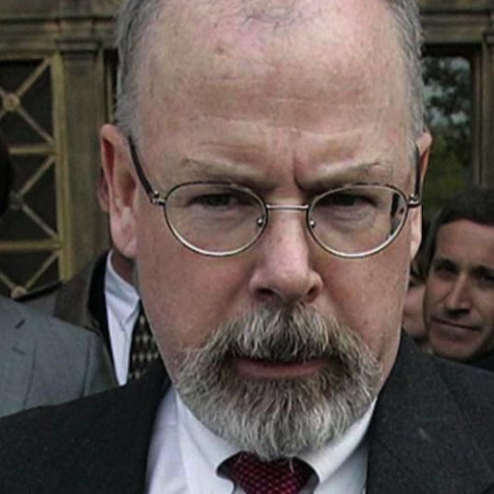Our DOJ Refuses to Send Officials to Jail – Scott Bloch Edition
This is getting ridiculous.
The Department of Justice has literally teamed up with Scott Bloch-who previously plead guilty to blowing off Congress–to try to help him avoid any jail time, at any cost to credibility, for that crime. The extent of this collusion first became apparent in a ruling dated February 2, 2011 by Federal Magistrate Judge Deborah Robinson, who is handling the matter.
In a nice touch, DOJ cited the case of Elliott Abrams–a quintessential example of lack of accountability–for their argument that lying to Congress didn’t require jail time. And why not? He’s among the many criminals Obama now regularly takes advice from.
Now, there’s more than a chance that what is going on here is DOJ scrambling to prevent Bloch from doing jail time because they–part of the Executive Branch–like it that people like Alberto Gonzales, Monica Goodling and John Yoo have managed to avoid almost all Congressional oversight. And, now with Darrell Issa cranking up the not-so-way back investigatory machine, they really do not want a precedent made that executive branch officials who lie to Congress have to – gasp – actually serve jail time. In spite of the fact that is exactly what the law clearly specifies on its face. Again, from Judge Robinson:
In 1857, Congress enacted a statutory criminal contempt procedure, largely in response to a proceeding in the House of Representatives that year. CRS Report RL34114, Congress’s Contempt Power: A Sketch, by Morton Rosenberg and Todd B. Tatelman at 7. In the enactment, Congress provided for trial of the contemnor before a court, rather than a trial at the bar of the House or Senate. Id. “It is clear from the floor debates and the subsequent practice of both Houses that the legislation was intended as an alternative to the inherent contempt procedure, not as a substitute for it.” Id. (emphasis supplied). In a discussion of the legislative history of the statute, the Supreme Court observed that “[t]his statute was passed . . . as a direct result of an incident which caused the Congress to feel that it needed more severe sanctions to compel disclosures than were available in the historical procedure of summoning the . . . witness before the bar of either House of Congress . . .” Watkins v. United States, 354 U.S. 178, 207 n.45 (1957) (emphasis supplied). Thus, Congress’s intent was to make the penalty for violating the statute punitive. See Russell v. United States, 369 U.S. 749, 755 (1962) (“In enacting the criminal statute . . . Congress invoked the aid of the federal judicial system in protecting itself against contumacious conduct.”) (quoting Watkins, 354 U.S. at 207). With respect to sentencing, the statute, as enacted in 1857, provided that “on conviction,” a person “shall” pay a fine and “suffer imprisonment in the common jail not less than one month nor more than twelve months.” Act of January 24, 1857, ch. 19, 11 Stat. 155 (emphasis
supplied).
But avoiding this crystal clear statutory mandate would be utterly consistent with one of the first things Read more →



